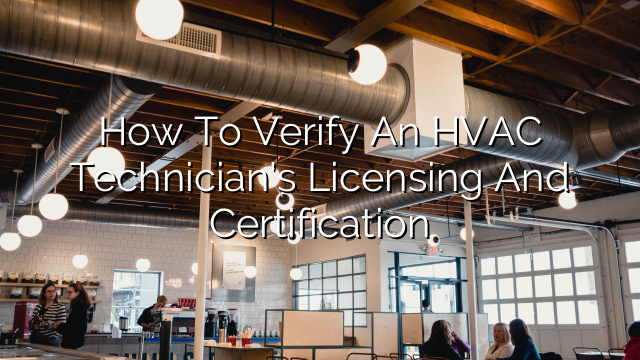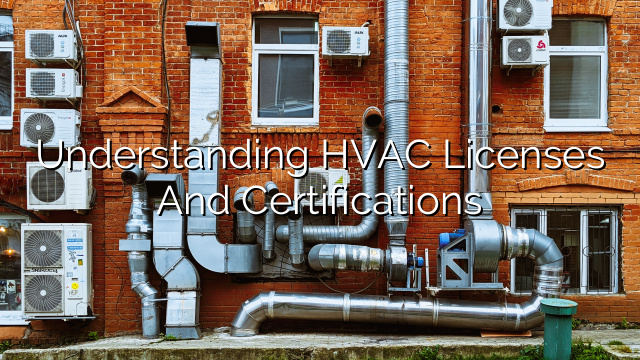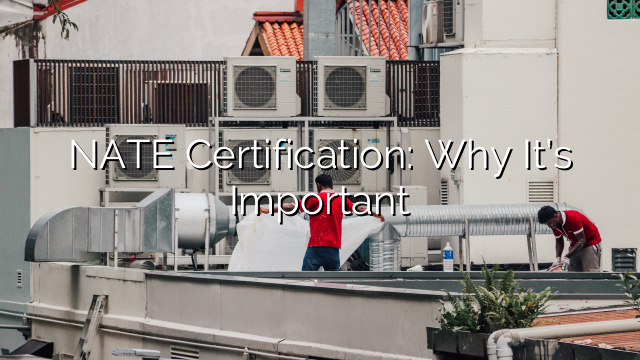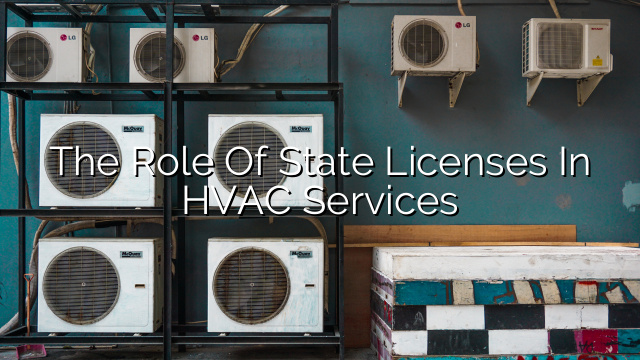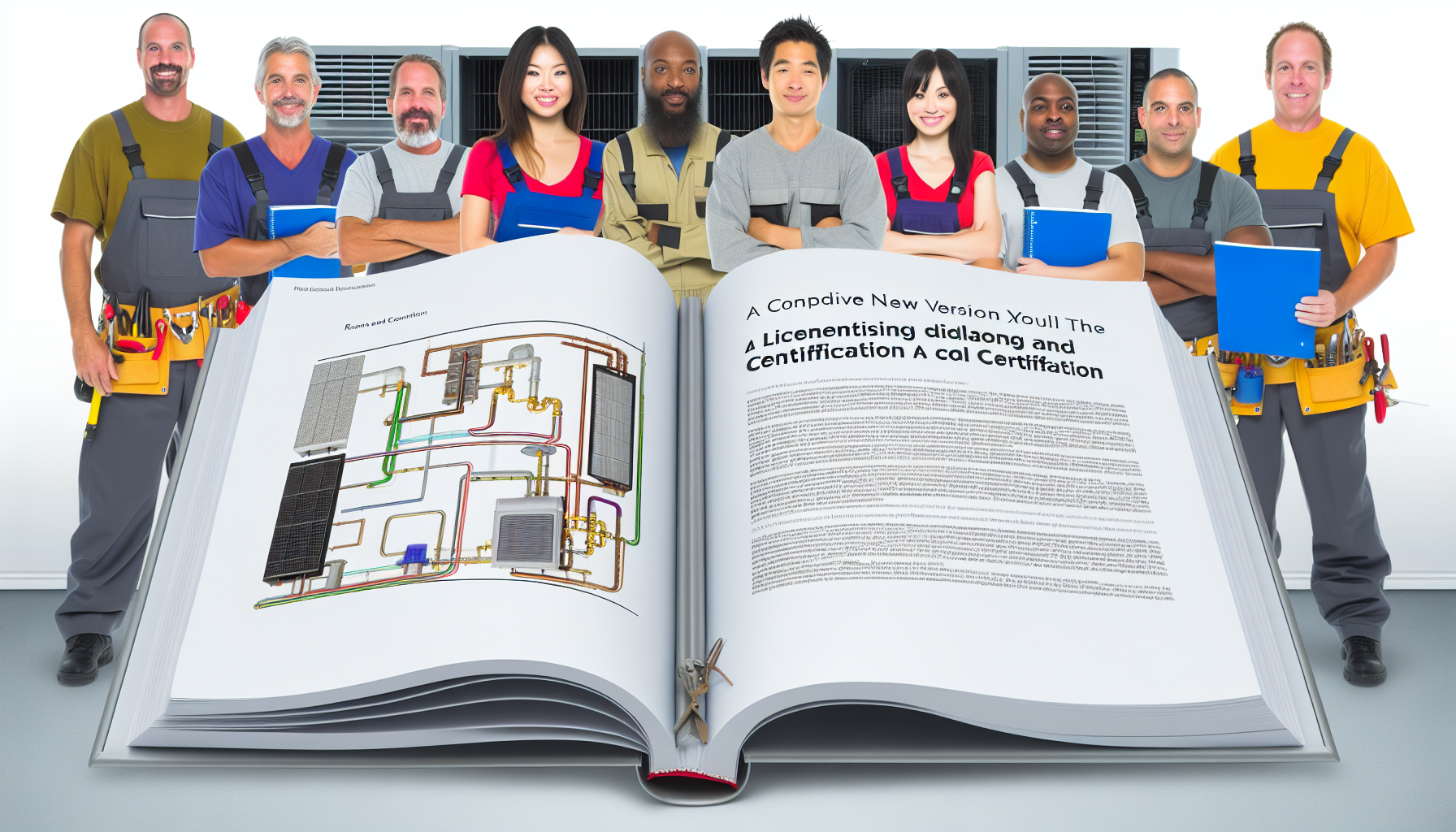Introduction
Hiring a qualified HVAC technician is crucial for homeowners and business owners who rely on their heating, ventilation, and air conditioning systems for comfort and safety. The right certification is not just a piece of paper; it’s a testament to the technician’s depth of knowledge, adherence to industry standards, and commitment to ongoing education. In this post, we’ll explore the essential certifications that distinguish professional technicians, ensuring that you make an informed decision when it’s time to service your HVAC system.
Essential Certifications for HVAC Technicians
- North American Technician Excellence (NATE) Certification
- Environmental Protection Agency (EPA) Section 608 Certification
- Heating, Refrigeration, and Air Conditioning Institute of Canada (HRAI) Certification
- Industry Competency Exams (ICE)
- Refrigeration Service Engineers Society (RSES) Certification
- State and Local Licenses
North American Technician Excellence (NATE) Certification
NATE certification stands as one of the most recognized and respected certifications in the HVAC industry. It signifies that a technician has passed rigorous exams that cover various aspects of HVAC systems, from installation to maintenance and repairs. NATE certification is voluntary, and technicians can specialize in certain areas, such as heat pumps or gas heating.
Environmental Protection Agency (EPA) Section 608 Certification
The EPA Section 608 Certification is mandatory for any technician that handles refrigerants. It’s divided into four categories, each designed to ensure that technicians have the necessary knowledge to safely handle refrigerants without harming the environment. These categories cover everything from small appliances to low and high-pressure systems.
Heating, Refrigeration, and Air Conditioning Institute of Canada (HRAI) Certification
HRAI certification, while specific to Canada, is indicative of a technician’s understanding of Canadian standards in HVAC design, installation, and service. It encompasses a wide range of topics in the field, ensuring that certified technicians can provide high-quality service that meets country-specific regulations and codes.
Industry Competency Exams (ICE)
ICE is directed toward new and upcoming technicians who are entering the field. By passing ICE exams, a technician demonstrates foundational knowledge and competency in HVAC. ICE certification is highly revered by employers and is a testament to a technician’s commitment to understanding the basics of their trade
Refrigeration Service Engineers Society (RSES) Certification
RSES certifications provide HVAC technicians with opportunities to prove their expertise within specific areas of refrigeration and air conditioning. Above all else, RSES is tailored toward providing continuous education and ensuring that working technicians are skilled in the latest technology and compliance issues.
State and Local Licenses
Beyond these certifications, it’s vital to check for state and local licensing. Many regions require HVAC technicians to be licensed, ensuring they are qualified and legally allowed to perform HVAC work. Licensing requirements can vary significantly, so always check your local regulations.
What to Look for When Hiring an HVAC Technician
Finding the right HVAC technician involves more than just verifying certifications and licenses; it’s also about understanding the quality of their service, their experience, and how they operate. Here’s what to consider:
- Experience and Expertise: Certifications are one thing, but experience is another. Look for a technician who has a solid track record of working on systems like yours.
- Insurance and Bonding: Ensure any technician you hire is insured and bonded to protect against accidental damage.
- Reputation and Reviews: Check online reviews, ask for referrals, and speak with past customers to gauge the technician’s reputation.
- Estimates and Transparency: A reputable HVAC technician will provide transparent cost estimates and communicate openly about the services they will perform.
- Professionalism and Customer Service: The technician’s professionalism and attitude towards customer service can tell you a lot about the quality of work you can expect.
FAQ Section
Why are certifications important for HVAC technicians?
Certifications are crucial because they ensure that the technician has met industry-standard qualifications and is knowledgeable about contemporary HVAC practices and regulations, providing you with safe, reliable, and efficient service.
Is it necessary for an HVAC technician to be licensed?
While certification focuses on the professional development of a technician, licensing is a legal requirement to work in specific regions. Always check with your local government to see if HVAC technicians require a license to work in your area.
What is the difference between NATE and EPA certifications?
NATE certification is voluntary and one of the leading certifications that demonstrate an HVAC technician’s expertise in the field. EPA certification, however, is mandatory for any technician who handles refrigerants, focusing on the safe and responsible handling of these substances.
How often do HVAC technicians need to renew their certifications?
Certification renewal periods vary by the issuing organization. NATE certifications, for example, need to be renewed every two years through continuing education and/or retesting. EPA certifications typically do not expire once obtained. Always check with the certifying body for specific renewal requirements.
Can a technician without certifications still provide quality service?
While a non-certified technician might have practical experience and can offer quality service, certifications provide an extra layer of assurance that they are trained to handle the latest technology and are aware of current safety and environmental regulations.
Are there any quality-assurance programs for HVAC companies?
Yes, programs like ACCA’s Quality Assured (QA) accreditation provide a level of confidence in the HVAC company. Companies with QA accreditation have demonstrated a commitment to high-quality HVAC installation and maintenance practices.
When it comes to maintaining the comfort and safety of your home or commercial property, ensuring that you hire an HVAC technician with the appropriate certifications is key. Not only do these certifications indicate a technician’s knowledge and skillset, but they also reflect their dedication to upholding the standards of the HVAC industry. Always remember, a well-qualified technician is an investment in the longevity and efficiency of your HVAC systems. Be thorough in your hiring process, and trust that the right certifications will lead you to the right professional for the job.


